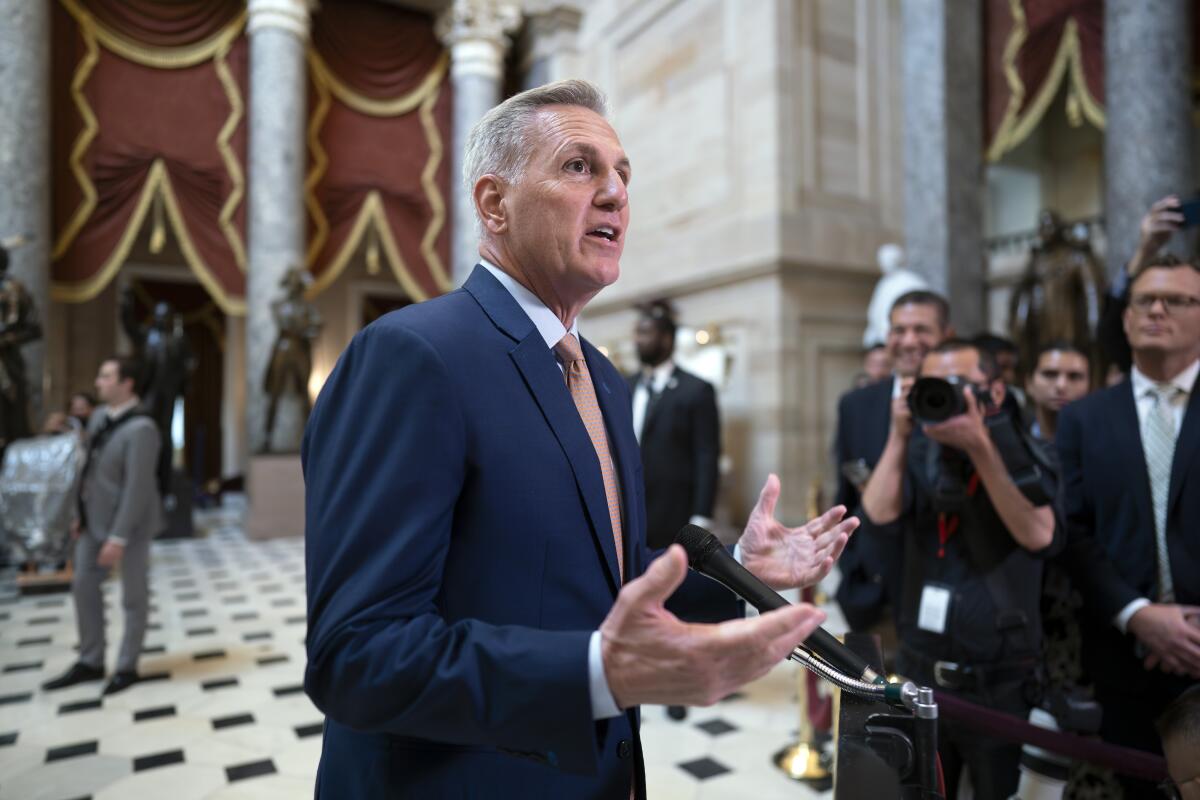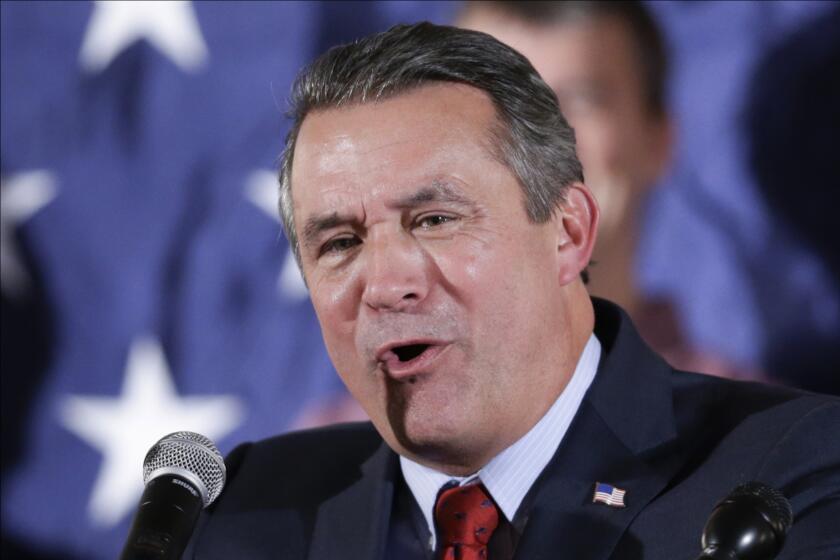Right-flank House Freedom Caucus unveils demands to support spending bill and avoid shutdown

- Share via
WASHINGTON — Right-flank House Republicans in a group known as the Freedom Caucus have unveiled a list of demands that they want included in a stopgap spending measure to keep the federal government running after the end of September.
It’s a smorgasbord of nonstarters for the Democratic-controlled Senate and the White House, signaling the challenges House Speaker Kevin McCarthy will face next month to get a bill passed in the House without alienating a sizable share of his conference.
Historically, members of the Freedom Caucus rarely support short-term spending bills to keep the government open, but with Republicans holding just a five-seat majority in the House, they have significant leverage over the agenda. Still, McCarthy (R-Bakersfield) will likely need votes from Democrats to pass a short-term funding measure that can also get through the Senate and be signed into law.
When House Speaker Paul D.
Among the demands from the House Freedom Caucus:
Spending levels below the top-line numbers that McCarthy had agreed to with President Biden as part of a bill to increase the nation’s debt ceiling.
Inclusion of a bill that aims to build more wall at the southern border and restrict asylum for those
seeking to remain in the U.S. for fear of persecution or harm.
Addressing what they call the “unprecedented weaponization of the Justice Department and FBI” to conduct political “witch hunts.”
And opposing any “blank check for Ukraine.”
Even before Republicans take control of the House, their narrow majority is exposing the rift between the party’s right-flank Freedom Caucus and its shrinking center-right.
The House Freedom Caucus labeled its message as “No Security, No Funding.” Some of the group’s members have embraced the idea of a government work stoppage to force lower non-defense spending, though many Republicans disagree with that approach for fear of taking the blame from voters.
Lawmakers will return to Washington after Labor Day and won’t have time to get all 12 government funding bills approved before the new fiscal year begins Oct. 1. McCarthy last week floated the prospect of a short-term bridge that would give the House and Senate more time to reach a compromise on final spending levels for the year.
If Congress fails to pass the spending bills into law by Jan. 1, it raises the possibility of an across-the-board 1% reduction in spending for the year that would kick in at the end of April.
Senate Democrats are on board with getting a short-term spending bill passed, Senate Majority Leader Charles E. Schumer (D-N.Y.) told reporters last week.
“We hope that our House Republicans will realize that any funding resolution has to be bipartisan or they will risk shutting down the government,” he said.
More to Read
Get the L.A. Times Politics newsletter
Deeply reported insights into legislation, politics and policy from Sacramento, Washington and beyond. In your inbox twice per week.
You may occasionally receive promotional content from the Los Angeles Times.








